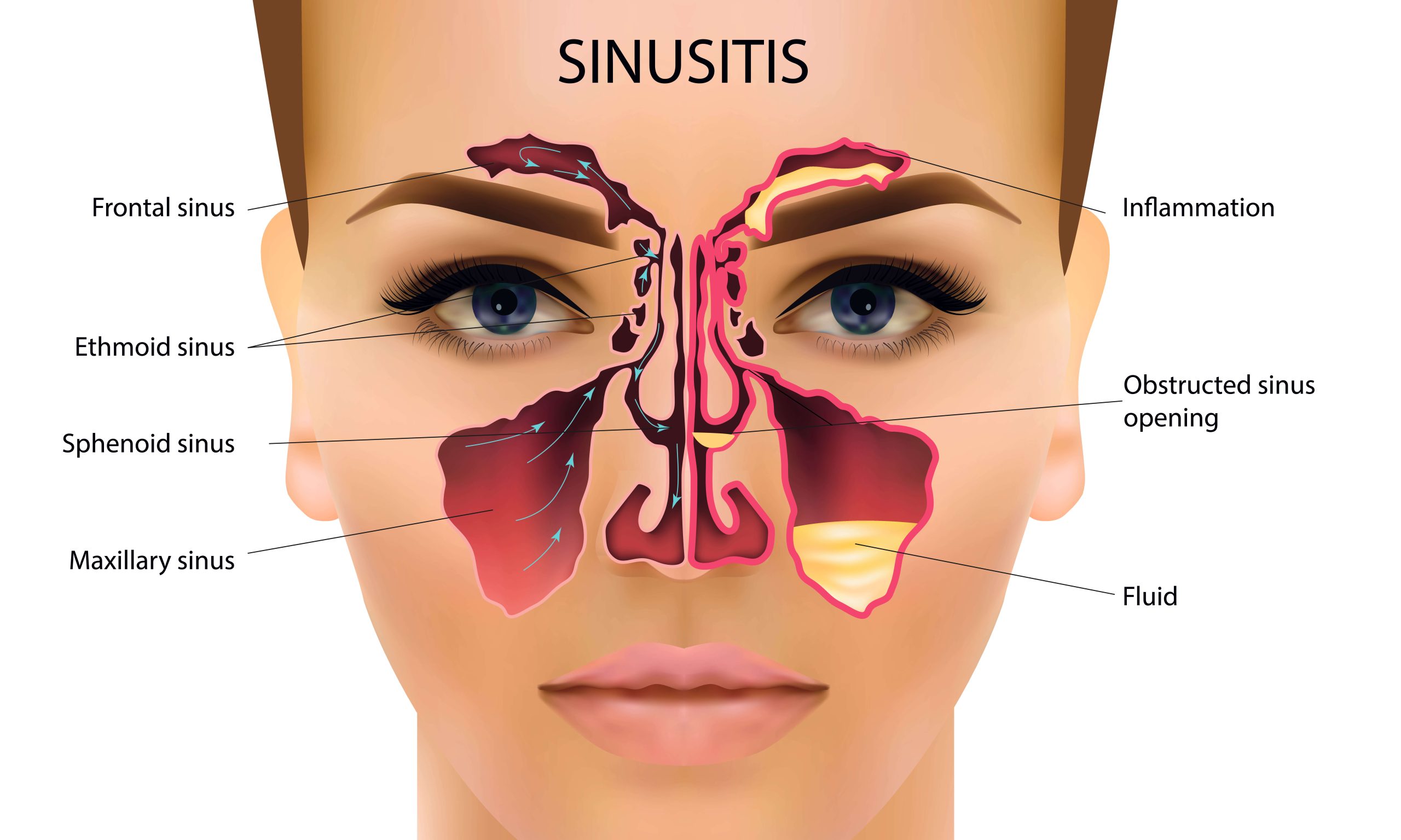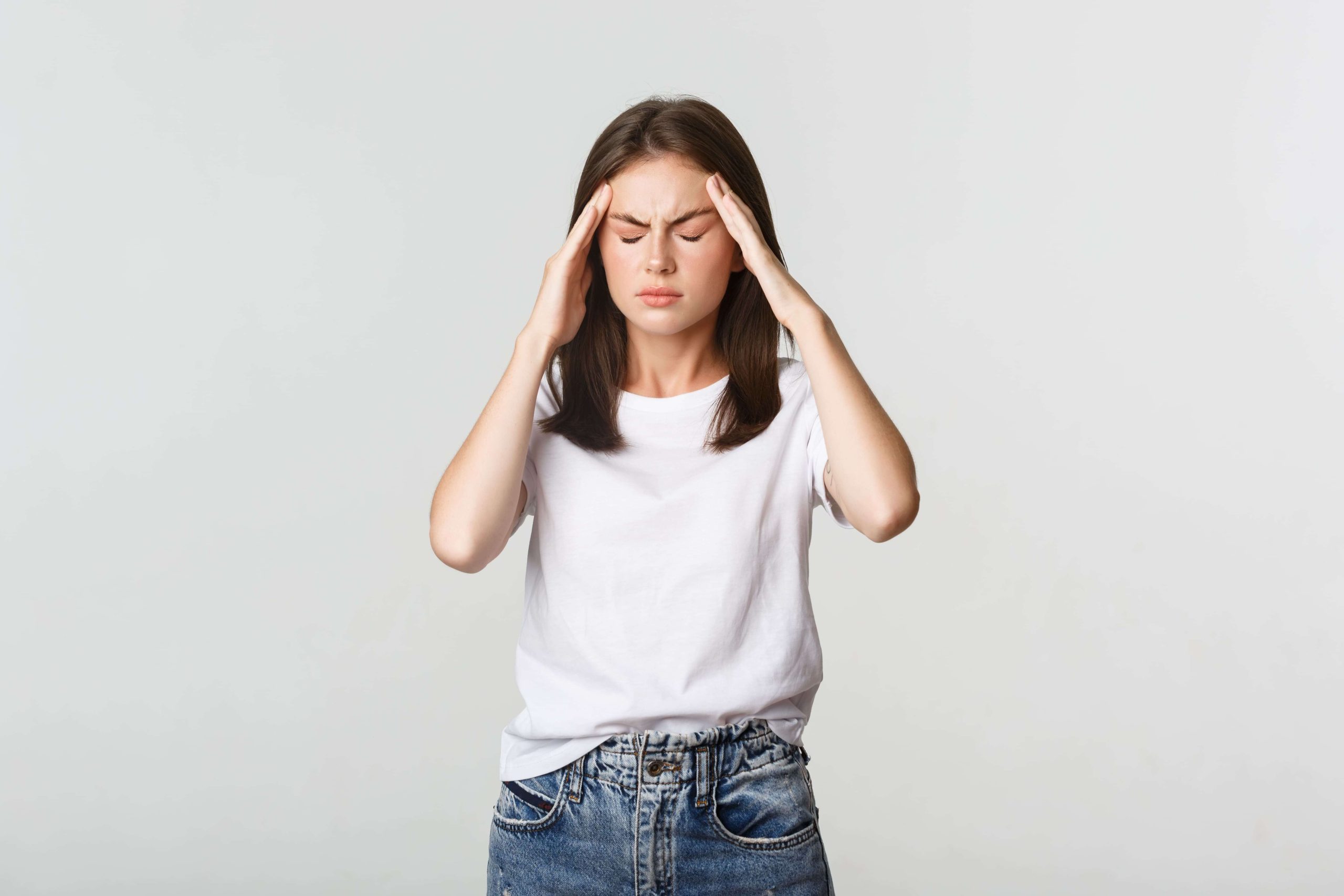SINUSITIS
SINUSITIS: MORE THAN JUST CONGESTION

WHAT IS SINUSITIS?
SYMPTOMS OF SINUSITIS
For many, a noticeable tenderness and swelling on the cheeks is the first – and most prominent – symptom they notice. This is usually followed by a blocked nose, a headache, a loss of smell, a high temperature, and bad breath, stemming from the infected mucus. In infants, the symptoms of sinusitis often look slightly more worrisome, from nose-breathing and trouble feeding to an unusual irritability.
SINUSITIS TREATMENTS
ANTIBIOTICS
While antibiotics aren’t always the best option for sinusitis – particularly if it’s caused by a virus – they’ll be your best bet if you’re experiencing a bacterial infection.
ANTIHISTAMINES
If your symptoms are caused by allergies, antihistamines will help build a barrier against irritation, congestion, and mucus production, allowing your symptoms to resolve hiccup-free.
STEROID NASAL SPRAYS
By reducing swelling in the sinuses, steroid sprays are designed to alleviate pressure, reduce the build-up of mucus, and ease your symptoms.
PAIN RELIEF
While painkillers won’t offer long-term relief, they will make you that bit more comfortable while you see out your most difficult symptoms – especially when paired with plenty of fluids, lots of rest, and decongestants.
CAUSES OF SINUSITIS
SINUS INFECTION EAR PAIN
It’s no secret that sinus infections can sneak into the ear, but it’s not just caused by excess swelling. Sinusitis results in inflammation, meaning the fluid in the sinuses has trouble traveling into the nose as usual. In some cases, this causes the fluid to make its way towards the eardrum, creating a breeding ground for bacteria and infection. In most cases, however, it’s the build-up of sinus pressure that causes ear pain. If you find that it’s worse in the morning, it’s likely because the fluids have been building up throughout the night. The good news? Propping up your pillow should stop it from happening again.
SINUS INFECTION JAW PAIN
The truth is, sinus infections rarely just affect the sinuses. As they become inflamed, the pain, pressure, and swelling radiates from the epicenter of the infection, making their way towards the teeth, jaw, and cheeks. It often presents as a dull ache in the jaw, and subsides as the sinus pressure alleviates.
RHINITIS VS SINUSITIS
In short, rhinitis happens when the inside of your nose is irritated – usually by allergens, such as pollen. In contrast, sinusitis is usually caused by an infection. And while they’re two of the biggest culprits behind a stuffy nose, telling them apart is generally simple. With rhinitis, you can expect to see more itchiness, sneezing, and eye-watering, with clear mucus, not the yellow/green discharge we see with sinusitis.
UNBEARABLE SINUS TOOTH PAIN
You’re not alone. For many, it’s one of the most debilitating symptoms of sinusitis, making work, school, sleeping, and even eating an uphill battle. It happens when mucus builds up, creating an ever-increasing pressure with nowhere to go, which then makes its way towards your upper rear teeth.

HOW TO RELIEVE TOOTH PAIN FROM SINUS PRESSURE
CAN CONGESTION CAUSE DIZZINESS?
Absolutely! It’s a little-known side effect of sinusitis, which can flip your day-to-day 180°. When sinuses become inflamed, they have difficulty draining fluids as they usually would. This allows mucus to build up, increasing pressure in the middle ear, which, in turn, disrupts your balance. If you feel a spinning sensation, or that your surroundings are moving but you’re not, this is called vertigo – a symptom caused by a problem in your inner ear.

